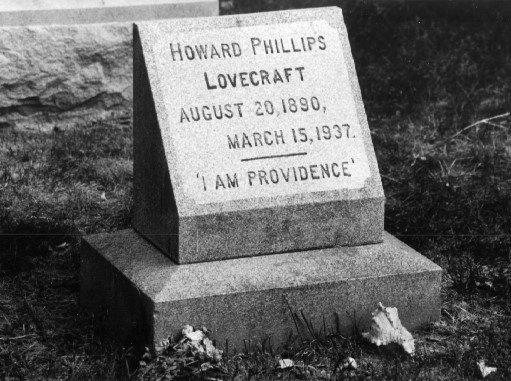I’ve been reading a lot about Lovecraft recently (more than I’ve been reading Lovecraft himself — his prose is so dreary). I found a couple of references to a brief trip to Hampshire/Sussex, including an unpleasant few days spent in Brighton. Which got me thinking about Brighton and cosmic horror, which then got me scribbling little weird tales about Lovecraft coming back to life in Brighton, a city he loathed when he’d been there in life. Here’s one of them:
I am Brighton
Lovecraft and I stroll the Brighton promenade. We pass the skeleton of the West Pier, blackened iron bones left behind when it was torched. We come to the stone jetty a little further along and walk to the end. Once there, Howard puts his hands deep in his coat pockets and sags. I look toward the ruins. “Do you ever wonder what’s under the sea?”
“All the time,” he sighs, then turns to face the shore, his back to the water. “We should go inland.”
“Why are you here if you hate it so much?”
He has walked a few paces. He stops, turns a little but not enough to face me. “I had no choice. I was summoned.”
He’s told me that a few times but never elaborates. He is resentful, hates being here, marooned in Brighton three quarters of a century after he died. This is a man who was disappointed by his first life, where he sometimes had to go without food to have enough money for stamps, a life that was too lonely. I tell him he should come out with me to bars, to parties, try to let it go, but he never does. He makes no effort to do anything with his second life.
“The problem with the sea is this,” he declares, turning to face the shore once more. I move closer to hear properly. “You can never see what the depths hold. There might be hideous things in the dark waters. And most of our world is ocean, inhospitable to all life. It amazes me that any human tribe ever lived in sight of the ocean.”
He shudders and walks away. But I continue staring at the sea. Its strength and power captivate me. The water here is too cold and cloudy to see more than a few inches down. Howard sometimes claims that something monstrous lives in the waters off Brighton. I don’t know if he’s joking when he says this, but he may well be right. That’s the thing about the sea. At least outer space is open – nothing can hide there and we are tracking every object for millions of miles. The sea is so much closer yet we have no idea what it hides.
The thing sleeps. Occasionally people are drawn to this shore. Sometimes I feel its pull too, a gravity, as if Brighton is tilted, as if it inclines towards the shore. Not everyone can resist this force. August Bank Holiday 1973, the writer Ann Quin drowned herself near the pier, ‘given to the sliding of the water’. Once considered a giant of British literary fiction, her books now only rarely surface into print. I feel so sad for her, stepping into the cold water, nobody to call her back.
I wonder how long I could keep going in that cold water. Once you’re a certain distance from the beach, it doesn’t matter how deep the ocean is, it might as well go down forever. Once you can no longer dangle your toes down and touch the bottom, there could be anything below you.
I turn back and Lovecraft has vanished. I scan the shore and can’t see him, which means he probably went to buy a coffee at the Meeting Place Cafe. I always tell him to try the rock cake, but he declines. I’m tempted to leave him, to walk in the other direction, but I don’t. I’ll buy a coffee and we’ll walk further. Lovecraft and I, bound together, unable to escape one another.
While often loathesome, Lovecraft is a fascinating character to write about. Long before I knew about his time in Sussex, I wrote another HPL story, Eat at Lovecraft’s, which features Howard Philip reincarnated to run a greasy-spoon near Hastings. There is also an audio recording from when it was performed at Liar’s League.
